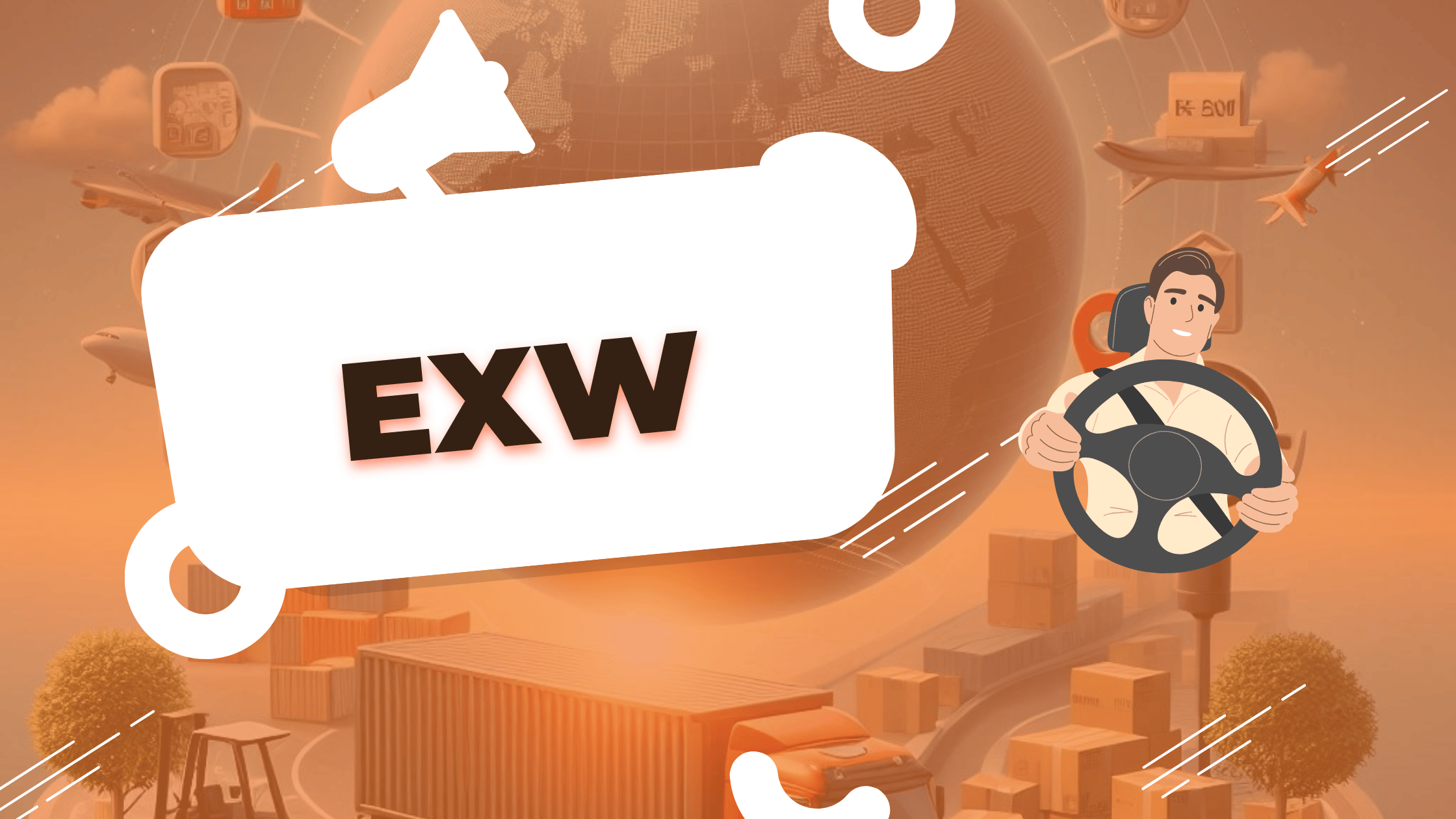EXW delivery terms - What does it mean in Incoterms 2020?
EXW (Ex Works) is one of the basic rules of Incoterms 2020, defining the terms of delivery in international trade. Understanding what EXW means is crucial to the proper execution of trade transactions.
Learn about our transportation services
What is EXW - basic information
The EXW (Ex Works) rule specifies that the seller delivers the goods by placing them at the buyer's disposal at a designated location. The EXW terms and conditions impose maximum obligations on the buyer with regard to the freight.
Obligations of the seller according to EXW Incoterms 2020
Basic tasks of a salesman
The seller and buyer must clearly define the place of delivery. According to the EXW Incoterms 2020 rule, the seller has minimal obligations:
- Preparation of goods at the agreed location
- Ensuring that the goods are ready for collection
- Release of goods documentation
Check out our specialized transportation services
Obligations of the buyer at EXW
Transportation and paperwork
The buyer shall bear all costs associated with:
- Organization of transport
- Loading of goods
- Export and import customs clearance
- Cargo insurance
See our solutions in pharmaceutical transportation
International trade rules - EXW in practice
The International Chamber of Commerce defines EXW as a rule that imposes minimum obligations on the seller. The EXW Incoterms rule is often chosen in international trade because of its clear division of responsibilities.
EXW transportation costs
According to the terms of the EXW, the buyer bears all risks and costs associated with:
- Organization of transportation of goods
- Provision of a means of transport
- Loading and unloading
- Customs clearance
Learn more about Incoterms rules
Marked place of delivery in EXW
Determining the point of delivery
The seller delivers the goods at a designated place, which must be precisely specified in the contract. It can be:
- Seller's warehouse
- Factory
- Other agreed location
Loading of goods in practice
Organization of the loading process
Under EXW conditions, the organization of loading lies with the buyer. It is he who must provide:
- The right mode of transportation
- Personnel for loading
- Essential equipment
Check out our express transportation
Ready to receive - what does it mean?
Goods are considered ready for collection when:
- It is properly packaged
- Has the required documentation
- Is available at the agreed place and time

Differences between EXW and other Incoterms terms and conditions
EXW a FCA
Unlike the FCA, in EXW:
- Seller does not arrange loading
- Not responsible for export clearance
- Does not bear the cost of transportation
EXW transportation
Organization of transportation
EXW transportation arrangements require the buyer:
- Choosing the right mode of transportation
- Coordinate the entire logistics process
- Provide all necessary documents
Explore our logistics solutions
Deliver the goods - responsibility of the parties
In EXW, the responsibility for the delivery of goods is clearly defined:
- The seller makes the goods available
- Buyer arranges transportation
- Risk passes to buyer when goods are made available
Summary of EXW conditions
The EXW rule is the most advantageous for the seller, but requires the buyer to make good logistical arrangements. As a professional transportation company, we offer comprehensive support in EXW delivery, providing:
- Professional transportation service
- Assistance with customs formalities
- Safe transportation of goods
- Comprehensive logistics service
Contact us
EXW conditions require special attention when planning international transportation. Our company offers full support in the implementation of transportation, ensuring safety and timely delivery.
Practical application of EXW in international trade
In the practice of international trade, EXW is often chosen by sellers because of its minimal liability. To deliver the goods in this case means only to make them available at the designated location. For example, a furniture manufacturer may prepare the goods for pickup at its factory, where the buyer bears all costs associated with further transportation.
Check out our transportation services
Detailed analysis of risks in EXW
Risk of loss or damage to goods
The buyer bears the risk of loss or damage to the goods from the moment they are made available. This includes:
- Risks during loading
- Transport damage
- Losses during customs clearance
Safeguarding the interests of the parties
Sellers and buyers should take special care:
- Precise determination of the moment of transfer of goods
- Documentation of the condition of the goods
- Transportation insurance
Financial aspects of EXW
Costs and fees
Under EXW conditions, the buyer bears all costs associated with:
- International transport
- Export and import customs clearance
- Cargo insurance
- Transport documentation
See our solutions in specialized transportation
Transport organization in practice
Planning the transportation process
When organizing EXW transportation, consider:
- Choosing the right mode of transportation
- Coordination of loading
- Route planning
- Documentation management
The role of the freight forwarder
A professional freight forwarder can significantly facilitate delivery by:
- Organization of comprehensive transportation
- Support in customs formalities
- Insurance consulting
- Cost optimization
Learn about our express transportation
Documentation in EXW
Required documents
Proper documentation in EXW includes:
- Commercial invoice
- Transport documents
- Certificates of origin
- Customs documents
- Quality certificates
Case study: EXW in practice
Example of delivery
Using industrial machinery delivery as an example:
- Seller prepares goods at the factory
- Buyer arranges transportation and loading
- Export customs clearance follows
- International transport
- Import clearance in the country of destination
Check out our logistics services
Trends in the use of EXW
Development and change
We observe the following trends:
- Increasing importance of document digitization
- Automation of logistics processes
- Development of transport management platforms
- New shipment monitoring solutions
Tips for importers
Best practices
When importing on EXW terms, it is worth it:
- Carefully check the condition of the goods before loading
- Secure adequate insurance
- Plan all stages of transportation
- Prepare complete documentation
See more about Incoterms rules
Comparison of EXW with other Incoterms 2020 rules
EXW vs FCA
The main differences between EXW and FCA:
- Responsibility for loading
- Organization of export clearance
- Costs associated with preparing goods for shipment
Other popular rules
A comparison with other Incoterms rules shows that EXW:
- Minimizes seller's liability
- Maximizes buyer control over transportation
- Requires the greatest commitment on the part of the buyer
Cost optimization in EXW
Cost reduction strategies
The buyer can optimize costs by:
- Choosing the right mode of transportation
- Consolidation of cargo
- Negotiations with carriers
- Effective route planning
Learn more about our services
Transport development prospects in EXW
In the future, we can expect:
- Greater automation of processes
- Development of shipment tracking systems
- Simplification of customs formalities
- New transport security solutions
As a professional transportation company, we offer comprehensive support in the implementation of EXW deliveries. We provide not only transportation, but also advice and assistance in organizing the entire logistics process.
Sources and useful links
- International Chamber of Commerce (ICC): https://iccwbo.org/
- World Trade Organization (WTO): https://www.wto.org/
- UNCTAD (United Nations Conference on Trade and Development): https://unctad.org/
- Polish Chamber of Shipping and Logistics: https://pisil.pl/
- World Bank - Trade & Competitiveness: https://www.worldbank.org/
- European Logistics Association: https://www.elalog.eu/








